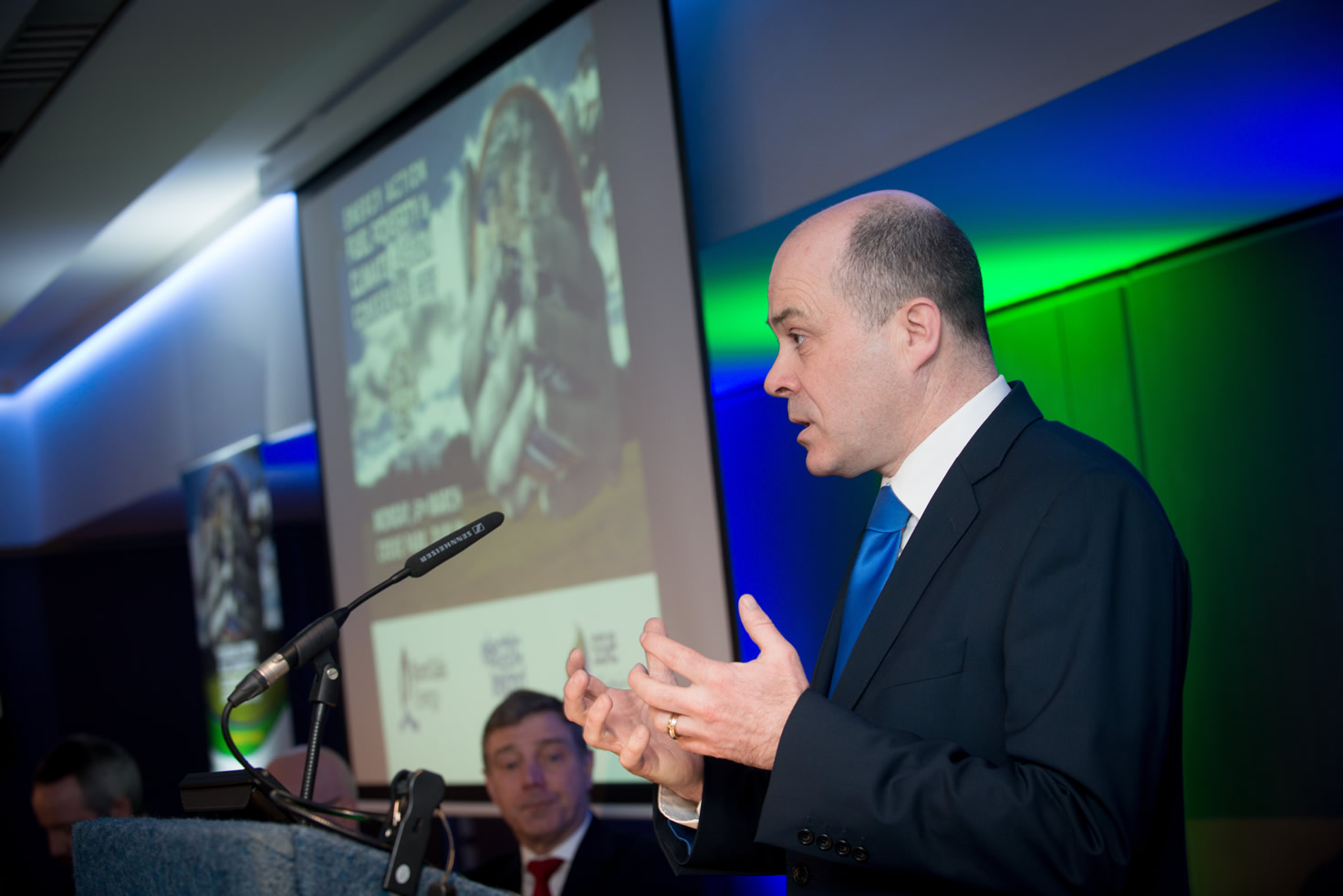Chances are if you are reading this you’re a young student in the prime of your life with a world of new surprises and exciting times ahead. I envy you.
When I was a science student in university over 20 years ago, terms like “climate change” and “global warming” never really featured in our young lives and, being honest, never really mattered. We were aware that the ozone layer was changing and depleting for scientific reasons but never did we envisage just how fast climate would change before our eyes. Never did we envisage the dangers and the devastation that this change would bring.
Our planet is heating up, and we are the dominant cause. The atmosphere and oceans have warmed, the amount of snow and ice have diminished and sea levels are rising as the concentrations of greenhouse gases have increased. This is climate change.
Young people are Ireland’s transition generation. You are the driving force behind the fight the world must take on against the very real and dangerous effects of climate change. I know you stand ready.
It is you who will inherit the consequences of government and societal actions today, and our collective ambition cannot fail you.
As a government we are trying to transform our economy into a sustainable one led by green growth and jobs. However, in making this enormous transition, we must also be mindful of today’s reality. We must harness the potential of the green economy to create alternative jobs for those working in industries that over time will become displaced.
New jobs will replace old, and our rural communities will be sustained and will prosper. It is only if we manage the change in this way that we will maintain the faith of civil society, and bring people with us in facing down the threat that climate change presents to our planet and our country.
Climate change is having a serious impact on Ireland’s environment, society, economy and natural resources. We have already seen rising sea levels, more intense storms and rainfall, increased river and coastal flooding, and a heightened risk of water shortages in summer. There’s an increased risk of new pests and diseases, poor water quality, and changes in the types of plants and animals on our land and in our oceans.
We have already seen rising sea levels, more intense storms and rainfall, increased river and coastal flooding, and a heightened risk of water shortages in summer.
One of the main questions facing us all is how can we make, individually and collectively, a meaningful contribution to this challenge. How can any country, particularly a small one like Ireland, make a practical difference?
Small countries do not have the capacity or resources to do everything, but we can do some things well and show an example that others can follow. Small countries face unique challenges, but these also provide opportunities for unique solutions. The legally binding landmark Paris Climate Agreement, which Ireland signed up to (only the US, Syria and Nicaragua do not support it), is about every country, great and small, taking effective action.
I am trying to engage with the public in a meaningful way and to connect the global and long-term challenge of climate change with the here and now. One of the main challenges facing us is how to convince people, particularly young people, that we need to take steps now that will benefit our children and our grandchildren.
This is why I believe that air quality is central to Ireland’s response to climate change. Air pollution is not just an environmental or climate problem. It threatens our natural resources, and the one big natural resource Ireland has is its people, so it threatens their health and well-being. Consider the economic costs of lost work days and health care. Given that air quality is directly associated with an average of four deaths in Ireland every day, and one in five children in this country suffer from asthma, it is a policy priority for me.
It is vital that we, as a country, fully embrace opportunities that the low carbon transition gives us. To tackle it effectively requires fundamental societal transformation. It requires resources, sustained policy change and widespread public engagement. People cannot be commanded. They must be consulted. Society cannot be changed by diktat.
People cannot be commanded. They must be consulted. Society cannot be changed by diktat.
On climate change, ambitious action is possible. Energy efficiency and climate action are inextricably linked. Using less energy and using it more efficiently is the most cost-effective and accessible way any of us can tackle climate change.
I am leading a National Dialogue on Climate Action that will help drive awareness around specific steps people can take daily in their lives. The challenge is not just to change what we do, it is to reimagine how we think and I am committed and determined to lead this change as Ireland’s first Minister for Climate Action.
It is a difficult task but we can be hopeful. It falls to you, the transition generation, to embrace our green future with all your might. Embrace it with your words and with your actions and with your hearts. My children and your children depend on us getting this right now. Without you, the fight against climate change will be too hard, if not impossible.
Denis Naughten is Minister for Communications, Climate Action and Environment.







